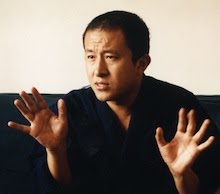In recent years, social psychologists have begun to study what they call the holier-than-thou effect. They have long known that people tend to be overly optimistic about their own abilities and fortunes — to overestimate their standing in class, their discipline, their sincerity.
But this self-inflating bias may be even stronger when it comes to moral judgment, and it can greatly influence how people judge others’ actions, and ultimately their own. Culture, religious belief and experience all help shape a person’s sense of moral standing in relation to others.
Religion appears to amplify the instinct to feel like a moral beacon. The study also found that the most strictly fundamentalist of the students were at the highest end of the scale. "It reminds me of one of my favorite bumper stickers,” said Dr. Epley, of Chicago. “ ‘Jesus loves you, but I’m his favorite.’
Tuesday, May 5, 2009
Stumbling Blocks on the Path of Righteousness
Rinpoche has often emphasised that view is primary in Buddhism, and ethics and morality are always secondary. They are embraced on the path only to the extent that they support our journey towards realising the view of emptiness. And one of the downfalls of theistic paths is that ethics and discipline can turn into extremism, and then it's no longer helpful but instead descends into self-righteousness, hubris and critical judgment of others. From the article "Stumbling Blocks on the Path of Righteousness" in the New York Times:
Subscribe to:
Post Comments (Atom)
.jpg)
.jpg)
No comments:
Post a Comment